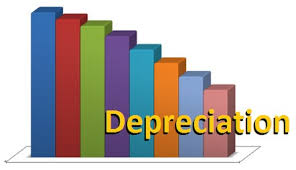
记忆方法
将“depreciation”分解为“de”和“preciation”。首先,“de”是前缀,表示“减少”或“下降”。接着,“preciation”可以拆分为“pre”和“ciation”。想象“pre”为“前置”,而“ciation”可以联想到“cious”结尾的词,如“precious”(宝贵的),但在这里是负面的“de”前缀,所以是“贬值”。综合起来,“depreciation”可以记忆为“减少价值或贬值”。
以上内容由AI生成, 仅供参考和借鉴
英语词源
- depreciation (n.)
- 1767, "a lowering of value" (originally of currency), noun of action from depreciate. Meaning "loss of value of a durable good by age or wear" is from 1900.
权威例句
- 1. A depreciation of a currency'svalue makes imports more expensive and exports cheaper.
- 一国货币的贬值会使其进口更贵,出口更便宜。
- 2. They wrote off 500 for depreciation of machinery.
- 他们注销了500镑作为机器折旧费.
- 3. She can't bear the depreciation of the enemy.
- 她受不了敌人的蹂躏.
- 4. The government has been offering tax credits, accelerated depreciation, and other economic hanky-panky.
- 政府一直在搞税额抵免、加速折旧及其他一些经济上的花招。
- 5. The depreciation of other currencies in Asia has also caused a substantial reduction in tourism.
- 亚洲其他货币贬值,亦严重打击了本港的旅游业.